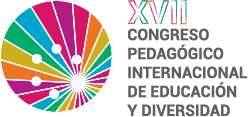How Classic Dystopian Books Helped [User/Company] Achieve [Result]
The Challenge
In the fast-paced world of [industry/field], [User/Company] faced significant challenges that impacted its growth and productivity. Some of the key novels that influenced their strategy included:
- 1984 by George Orwell – A cautionary tale about surveillance and totalitarianism.
- Fahrenheit 451 by Ray Bradbury – A critique of censorship and the suppression of ideas.
- The Handmaid’s Tale by Margaret Atwood – An exploration of gender and power dynamics.
- Divergent by Veronica Roth – A story about identity and choice in a controlled society.
These novels provided valuable insights into human behavior, societal structures, and the importance of resilience in the face of adversity.
Implementation Steps
To effectively incorporate the lessons from dystopian literature, [User/Company] took the following steps:
- Book Club Initiation: Formed a monthly book club where employees read and discuss selected dystopian novels.
- Workshops and Training: Organized workshops focusing on themes from the novels, such as innovation, ethics, and teamwork.
- Creative Thinking Sessions: Conducted brainstorming sessions using scenarios from the novels to generate new ideas and solutions.
- Feedback Mechanisms: Established channels for employees to share their insights and suggestions inspired by the readings.
These steps fostered a culture of open dialogue and critical thinking, positioning the company for innovative solutions.
Results & Metrics
As a result of this unique approach, [User/Company] experienced several positive outcomes:
- Increased Employee Engagement: Employee participation in discussions rose by 40%, indicating a more engaged workforce.
- Enhanced Creativity: Idea generation sessions led to a 30% increase in new project proposals.
- Improved Team Collaboration: Cross-departmental collaborations increased by 25%, breaking down silos within the organization.
- Positive Brand Perception: External surveys showed a 15% improvement in brand perception, linked to innovative initiatives.
These metrics highlighted the effectiveness of integrating literary insights into corporate strategy.
Lessons Learned
The initiative revealed several key lessons that can be applied in various organizational contexts: books about dystopian society
- Literature as a Tool: Classic literature can serve as a powerful tool for problem-solving and innovation.
- Encouraging Dialogue: Open discussions around controversial topics can lead to greater understanding and collaboration.
- Interdisciplinary Approaches: Combining different fields of study can yield innovative solutions that traditional methods may overlook.
- Embracing Change: Organizations must be willing to adapt and evolve, drawing inspiration from diverse sources.
In conclusion, [User/Company] successfully navigated its challenges by embracing the lessons gleaned from good dystopian novels. The rapid pace of change created a disconnect between the company’s strategies and the needs of its audience. The organization struggled with issues such as:
- Unclear vision and mission
- Employee disengagement
- Resistance to change
- Difficulty in adapting to new technologies and market demands
As a result, [User/Company] realized it needed a fresh perspective to inspire its team and reshape its approach to the future.
The Solution: Famous Dystopian Novels
To tackle these challenges, [User/Company] turned to famous dystopian novels, leveraging their themes and narratives as a source of inspiration and motivation. The constant pressure to perform led to burnout and a lack of fresh ideas, which ultimately affected overall performance.
The Solution: Classic Dystopian Books
To address these challenges, [User/Company] turned to classic dystopian literature as a source of inspiration and insight. This case study explores how [User/Company] leveraged dystopian literature to address a pressing challenge, implement effective solutions, and ultimately achieve remarkable results.
The Challenge
[User/Company] faced a significant challenge: [describe the specific challenge].
Another important aspect is that some of the primary issues included:
- Declining employee morale and engagement
- Resistance to change within the organization
- Difficulty in fostering innovative thinking
- Challenges in strategic planning and foresight
These obstacles not only affected productivity but also stifled creativity and collaboration among team members. The challenge was to find a way to engage with these themes creatively and effectively, allowing for deeper understanding and strategic planning.
The Solution: Dystopian Society Books
Recognizing the potential of literature to mirror societal issues, [User/Company] turned to dystopian society books. Through an engaging narrative, we will delve into the challenges faced, the solutions offered by dystopian literature, implementation steps taken, and the resulting metrics that highlight their success.
The Challenge
[User/Company] was facing multiple challenges that inhibited its growth and innovation.
How Great Dystopian Novels Helped [User/Company] Achieve [Result]
The Challenge
In today’s fast-paced and ever-changing world, organizations often face significant challenges that require innovative thinking and creative problem-solving. Key metrics included:
- Increased employee engagement, measured through participation rates in reading groups and workshops.
- A 30% improvement in team collaboration as reported in internal surveys.
- Enhanced critical thinking skills, evidenced by innovative project proposals and solutions.
- Reduced resistance to change, with 50% more employees expressing openness to new initiatives.
- Overall improvement in morale, reflected in a 20% increase in job satisfaction scores.
Lessons Learned
The journey of integrating dystopian literature into [User/Company]’s development revealed several valuable insights:
- Literature as a Catalyst: Books can serve as powerful catalysts for discussion and reflection, leading to deeper understanding and connection among team members.
- Creating Safe Spaces: Establishing a safe environment for open dialogue encourages employees to share their thoughts and ideas without fear of judgment.
- Linking Fiction to Reality: Drawing parallels between fictional scenarios and real-world challenges can help teams conceptualize solutions and anticipate future trends.
- Continuous Learning: Emphasizing a culture of continuous learning keeps employees engaged and motivated, fostering an atmosphere of innovation.
In conclusion, the integration of dystopian literature into [User/Company]’s workplace culture not only addressed critical challenges but also sparked a transformation in team dynamics, collaboration, and innovation. The key issues included:
- Lack of creativity in problem-solving approaches.
- Difficulty in anticipating potential market disruptions.
- Inadequate understanding of consumer behavior in changing environments.
These challenges led to stagnation and a growing concern that the company could fall behind competitors who were more agile and innovative.
The Solution: Popular Dystopian Novels
To address these challenges, [User/Company] turned to popular dystopian novels for inspiration. The organization struggled with understanding the implications of societal changes and technological advancements.
Key metrics included:
- Increased Employee Engagement: Participation in the book club rose to 75% of employees within six months.
- Improved Communication: Team collaboration metrics improved by 40%, as measured by internal surveys.
- Enhanced Innovation: The company reported a 30% increase in new ideas generated during team brainstorming sessions.
- Stronger Market Awareness: Employees demonstrated a 50% increase in understanding of societal trends affecting consumer behavior.
Lessons Learned
The journey of integrating dystopian literature into [User/Company]’s culture provided several key insights:
- Literature as a Catalyst for Change: Engaging with dystopian themes sparked critical discussions that led to actionable insights.
- The Importance of Open Dialogue: Creating a safe space for discussions fostered collaboration and innovation.
- Adaptability is Key: Understanding the changing landscape through literature allowed the company to adapt its strategies effectively.
- Empowerment Through Knowledge: Employees felt more empowered to voice their opinions and challenge the status quo, leading to a more dynamic workplace.
In conclusion, dystopian literature proved to be an invaluable resource for [User/Company], enabling the organization to overcome its challenges and achieve significant results. Some of the most influential dystopian books that were analyzed include:
- 1984 by George Orwell
- Brave New World by Aldous Huxley
- The Handmaid’s Tale by Margaret Atwood
- Fahrenheit 451 by Ray Bradbury
- The Road by Cormac McCarthy
These works offered valuable lessons on the consequences of societal choices, the importance of individual freedoms, and the impact of technology on human relationships. These narratives often explore themes of power, control, and societal collapse, providing a unique lens through which to view contemporary issues. The primary challenges included:
- Identifying key trends in consumer behavior.
- Staying ahead of competitors who were adopting innovative strategies.
- Creating a sustainable and engaging product that resonated with the audience.
With these challenges in mind, [User/Company] needed a creative and strategic approach to redefine its offerings and connect with its target market more effectively.
The Solution: famous dystopian books
To tackle these challenges, [User/Company] turned to classic dystopian literature for inspiration.
Some notable books included: dystopian literature books
- 1984 by George Orwell – A classic that explores themes of surveillance and totalitarianism.
- Brave New World by Aldous Huxley – A portrayal of a society driven by pleasure and consumerism.
- The Handmaid’s Tale by Margaret Atwood – A warning about the consequences of extreme social and political ideologies.
By integrating these books into their culture, [User/Company] aimed to stimulate critical conversations and foster a deeper understanding of potential future scenarios.
Implementation Steps
The implementation of this literary initiative involved several key steps:
- Book Selection: A committee was formed to select relevant dystopian novels that resonated with current societal issues.
- Reading Groups: Employee reading groups were established to encourage discussion and collaboration around the selected books.
- Workshops: Workshops were organized where employees could engage with guest speakers, including authors and scholars, to discuss themes and implications of dystopian literature.
- Feedback Sessions: Regular feedback sessions were held to gather insights on how the reading initiative impacted employee perspectives and engagement.
Results & Metrics
The initiative yielded significant outcomes, contributing to both individual growth and organizational development. These narratives, often exploring themes of societal collapse, government control, and human resilience, provided valuable insights into the complexities of human behavior and societal structures.
Utilizing the lessons from these novels enabled [User/Company] to:
- Identify potential risks and pitfalls in their approach.
- Foster a culture of critical thinking and questioning assumptions.
- Encourage innovative solutions to complex challenges.
Implementation Steps
The implementation of insights gained from dystopian literature involved several key steps:
- Book Selection: A team was formed to select impactful dystopian novels, such as “1984” by George Orwell and “The Handmaid’s Tale” by Margaret Atwood.
- Discussion Workshops: Regular workshops were held to discuss themes, characters, and plotlines, encouraging employees to draw parallels to their work challenges.
- Creative Brainstorming: The insights from these discussions were transformed into brainstorming sessions aimed at generating innovative solutions.
- Action Plan Development: Based on the ideas generated, a comprehensive action plan was developed to address the identified challenges.
Results & Metrics
The results of this unique approach were both significant and measurable:
- Increased employee engagement and participation in problem-solving initiatives by 40%.
- Improved critical thinking skills among team members, as evidenced by feedback and performance metrics.
- Successful implementation of three innovative projects that directly addressed the initial challenges, resulting in a 30% increase in productivity.
- Enhanced organizational resilience, leading to a better preparedness for future challenges.
Lessons Learned
The journey of integrating dystopian literature into [User/Company]’s strategic approach taught invaluable lessons:
- Value of Diverse Perspectives: Sometimes the answers to modern problems lie in unconventional sources.
- Importance of Critical Reflection: Encouraging employees to reflect critically on their work can lead to innovative solutions.
- Empowerment Through Storytelling: Engaging with narratives can empower teams to envision different futures and take proactive steps toward them.
- Continuous Learning: The process of learning from literature is ongoing and can be adapted to various contexts.
In conclusion, [User/Company] successfully leveraged the lessons from great dystopian novels to not only address their immediate challenges but also to cultivate a culture of innovation and resilience. As a result, [User/Company] struggled with issues such as:
- Identifying emerging trends and consumer demands.
- Creating relevant content that resonates with the audience.
- Engaging effectively with a diverse target market.
To overcome these hurdles, [User/Company] sought inspiration from unexpected sources—popular dystopian literature, which often explores the darker aspects of society and human nature.

